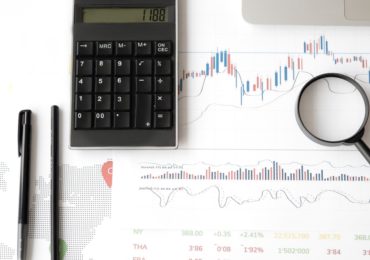
Put your money where your mouth is.
Most of you know this phrase. It means using your dollars to support causes in which you believe.
That often means donating to favorite charities or foundations. It also means patronizing businesses whose values are aligned with yours, and avoiding those with opposing values.
A growing number of Americans are also shifting their dollars to socially responsible and sustainable investments. Although people tend to use the terms interchangeably, even favoring the former when discussing their investment options, the two categories are actually somewhat different.
Socially responsible investing generally excludes companies that earn some portion of their revenue through producing, selling or promoting potentially objectionable products or services. Those may include military weapons, alcohol and tobacco, contraceptives, pornography or gambling equipment and activities. Many religious groups or investors with particular societal beliefs turn to socially responsible funds. As you can see, not everybody objects to each of those categories, and may not be interested in avoiding all of them entirely.
Other socially responsible screens exclude companies that do business in countries known to have systemic human rights violations. For example, in 2006, Boston University divested itself from companies with business ties to the Sudanese government.
On the positive side, some socially responsible investments tilt toward companies with good track records when it comes to treatment of employees and customers.
Sustainable investing, meanwhile, typically excludes companies that have a measurably negative effect on the environment, while including those taking steps toward a more positive outcome. For instance, firms that may be excluded from a sustainability screen are those that manufacture toxic agricultural chemicals, produce hazardous waste or other pollutants, or have regulatory problems related to their environmental impact.
On the more positive side, sustainability screens may include companies developing clean energy solutions, pollution-prevention technologies or are engaged in environmentally friendly activities, such as recycling. In addition, factors such as corporate governance and executive compensation may also be included in socially responsible and sustainability screens.
We have a growing number of clients who ask for investments aligned with their views about society and the environment. As it happens, more and more fund companies are doing quantitative research into the performance of socially responsible and sustainable investments, and are taking steps to hold companies accountable for their business activities.
We often use investments from Dimensional Fund Advisors. This company has done extensive research into the risk-and-return profiles of sustainable and socially responsible funds, with an eye toward helping people achieve their financial goals while also investing in a way that’s consistent with their values.
But how should you approach the decision about values-based investing? To help answer this, we can borrow a useful metaphor from the flight attendants’ instructions before takeoff. When pointing out the oxygen masks, they always say, “Put on your mask before helping others.” After all, if you are incapacitated, you can’t assist children or anybody else!
To put it bluntly: The sustainability of your own life, and that of your family, should be your first investing consideration.
Fortunately, today’s sophisticated screening methodologies make it easier than ever to protect your own interests while simultaneously investing in companies that are taking steps to protect the environment or address other social ills. Achieving long-term investment returns does not necessarily mean fully compromising certain of your beliefs.
Shareholder activism is the process whereby institutional investors, such as mutual funds, insurance companies and banks, can influence a company’s actions by exercising their rights as major stakeholders. Shareholders of McDonald’s put pressure on the fast-food giant in 2011, filing a resolution urging the firm to replace foam beverage cups with a more environmentally friendly alternative. The resolution itself fizzled, but it garnered enough votes among shareholders to make management sit up and take notice. Within two years, McDonald’s replaced the foam cups in all of its U.S. locations.
No company has a pure, unsullied, pristine record when it comes to the environment. As an investor, if you hold out for this kind of unicorn, you’ll end up with a pile of cash that doesn’t keep up with inflation. That only erodes your buying power over time and could put your retirement in jeopardy.
However, if you are open to mechanisms that put pressure on corporate managers and boards to make positive changes, you have a multitude of investment choices that can simultaneously do good for the planet, while helping you achieve your own financial goals.







